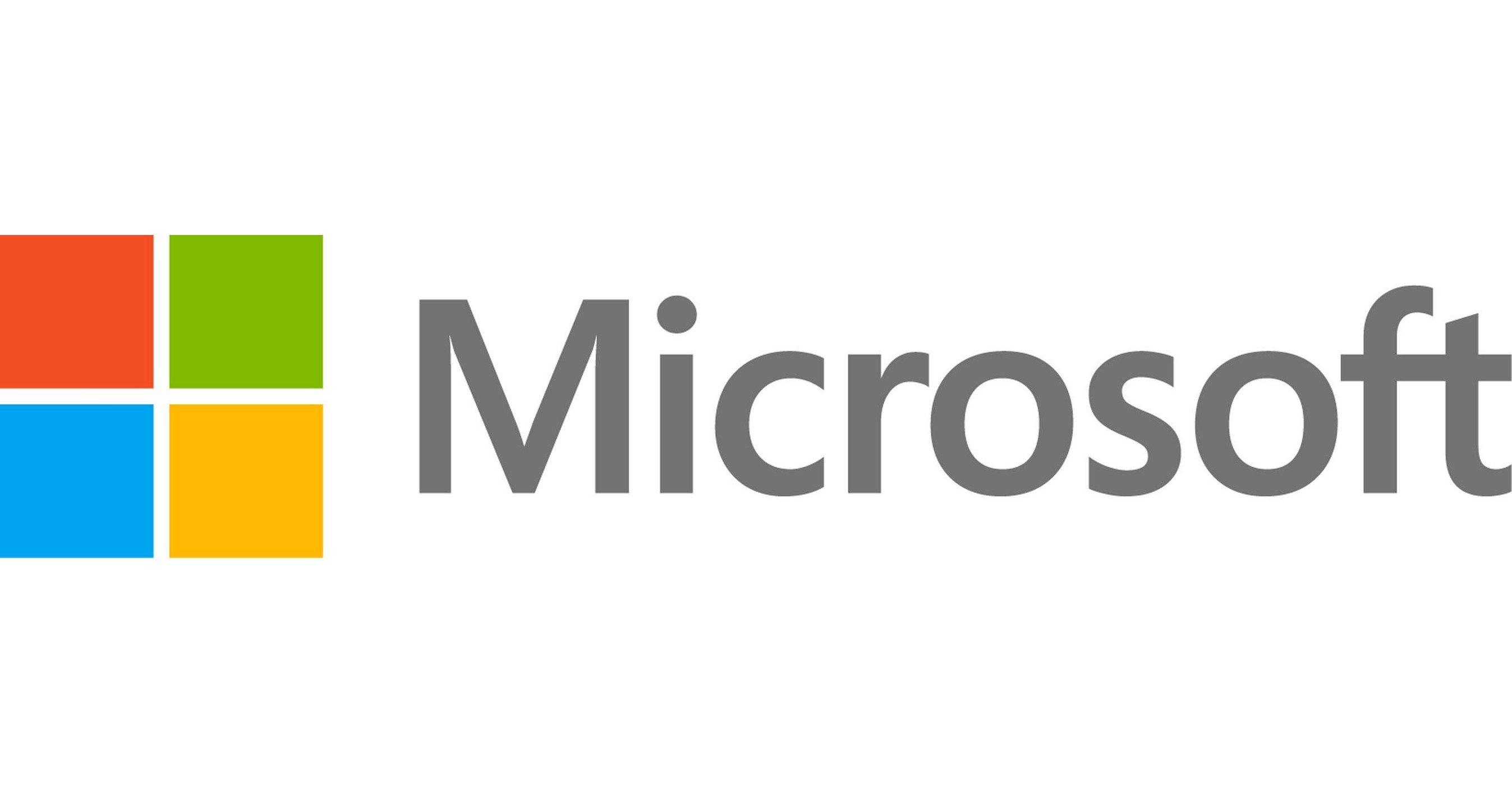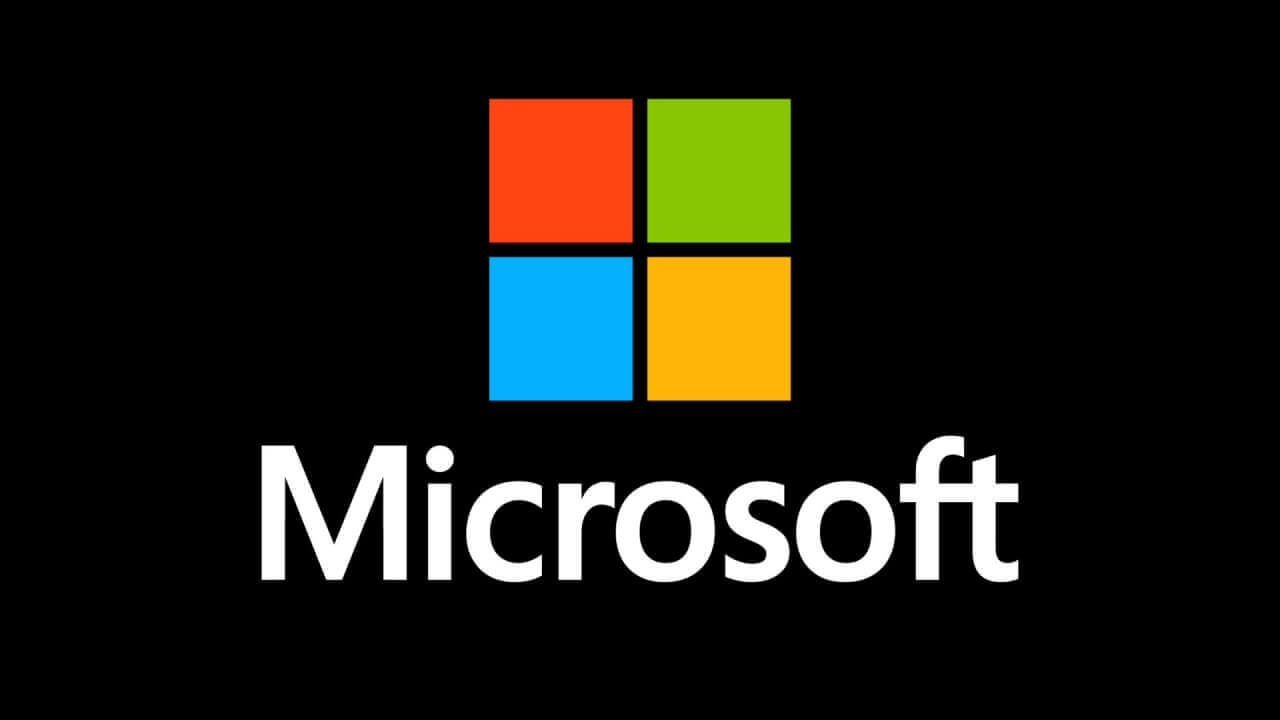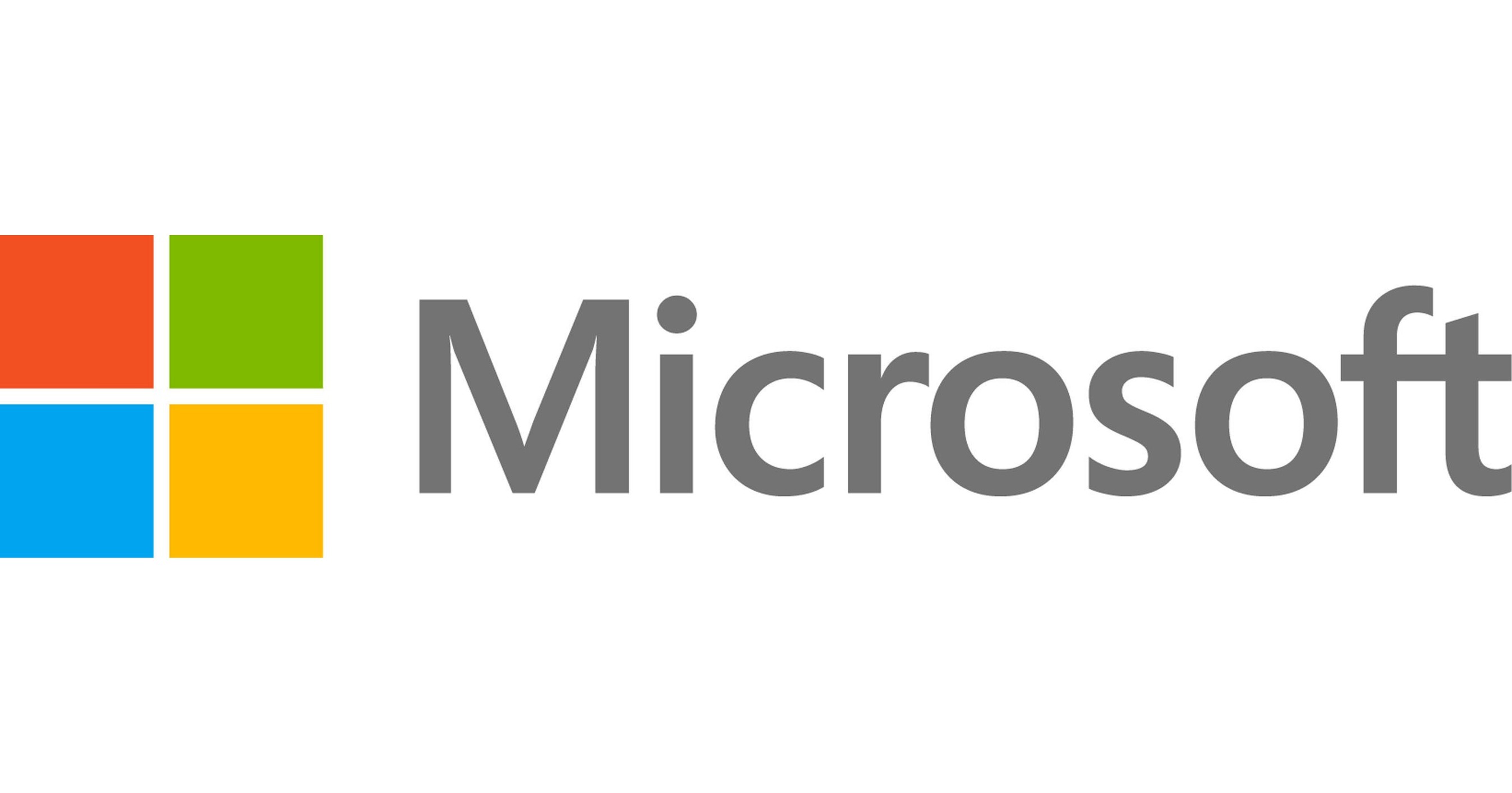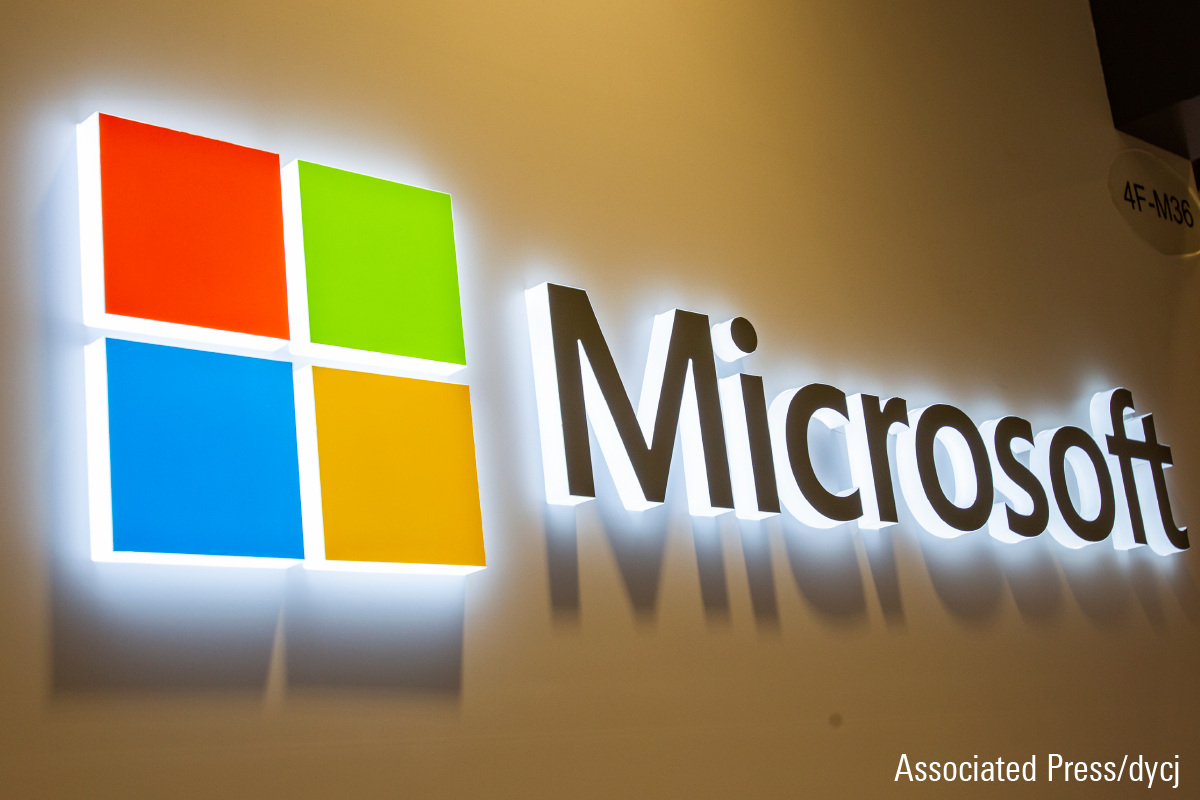Microsoft (MSFT) Coverage Initiated by H.C. Wainwright Amid AI and Cloud Services Growth

- H.C. Wainwright initiated coverage on Microsoft (NASDAQ:MSFT) with a Neutral rating, amidst growing traction in AI and cloud services.
- Wedbush raised its price target for Microsoft to $600, citing increased demand for AI services, with over 70% of Microsoft's customer base expected to adopt enterprise AI by 2028.
- Wells Fargo projects Microsoft's AI business to generate $100 billion in revenue, maintaining an "overweight" rating and increasing its price target to $585.
On June 25, 2025, H.C. Wainwright initiated coverage on Microsoft (NASDAQ:MSFT) with a Neutral rating, as reported by Benzinga. At the time, Microsoft's stock was priced at $491.69. This comes amid a broader context where Microsoft's AI and cloud services are gaining significant traction, as highlighted by Wedbush and Wells Fargo.
Wedbush has raised its price target for Microsoft to $600, up from $515, due to increased demand for AI services through Azure and Copilot. Analyst Dan Ives notes that AI is transforming Microsoft's cloud growth, with over 70% of its customer base expected to adopt enterprise AI by 2028. This optimism is reflected in Microsoft's inclusion on Wedbush's Best Ideas list.
Wells Fargo also shares a positive outlook, projecting Microsoft's AI business to generate $100 billion in revenue. Despite Microsoft's shares trading at historical highs, the AI sector is still in its early stages. Wells Fargo has maintained an "overweight" rating and increased its price target from $565 to $585, indicating confidence in Microsoft's growth potential.
Microsoft's current stock price is $490.21, showing a slight increase from the previous session. The stock has traded between $490.12 and $494.53 today, with a market cap of approximately $3.64 trillion. The trading volume is 7.43 million shares on the NASDAQ exchange, reflecting active investor interest.
Microsoft's capital spending is set to rise, with an expected $80 billion investment for fiscal 2025, projected to grow further in 2026. This investment supports the momentum in AI and cloud services, marking a pivotal time for the company as it continues to expand its enterprise offerings across various sectors.
| Symbol | Price | %chg |
|---|---|---|
| 4338.HK | 1600 | 0 |
| CYBR.JK | 1365 | 2.93 |
| 377300.KS | 53700 | 0.56 |
| MSFT.NE | 38.59 | 0.08 |

Microsoft Corporation (NASDAQ:MSFT) Continues to Thrive in the Tech Industry
- Goldman Sachs reaffirms its "Buy" rating for Microsoft Corporation (NASDAQ:MSFT), with a current stock price of $542.34.
- Microsoft's acquisition of a 27% stake in OpenAI, valued at $135 billion, enhances its AI capabilities and aligns with long-term strategic goals.
- The company's stock price has seen a positive trend, with a current value of $543.20, reflecting a 2.20% increase and investor confidence in its strategic decisions.
Microsoft Corporation (NASDAQ:MSFT) is a leading technology company known for its software products, cloud services, and hardware. It competes with other tech giants like Apple, Google, and Amazon. On October 28, 2025, Goldman Sachs reaffirmed its "Buy" rating for Microsoft, with the stock priced at $542.34. This decision reflects confidence in Microsoft's strategic moves and market position.
Microsoft's recent acquisition of a 27% stake in OpenAI, valued at approximately $135 billion, highlights its commitment to artificial intelligence. This partnership allows Microsoft access to OpenAI's advanced AI technology until 2032, enhancing its capabilities in the AI sector. This strategic move aligns with Microsoft's long-term goals and strengthens its position in the tech industry.
The stock price of Microsoft has seen a positive trend, currently at $543.20, marking a 2.20% increase. The stock has risen by $11.68 today, with a trading range between $540.77 and $553.72. This upward movement reflects investor confidence in Microsoft's strategic decisions, including its partnership with OpenAI.
Microsoft's market capitalization stands at approximately $4.04 trillion, indicating its significant presence in the market. The trading volume for the day is 19.85 million shares, showing active investor interest. The company's strategic initiatives, such as the OpenAI partnership, are likely contributing to this robust market performance.
The partnership with OpenAI, which values the AI company at $500 billion, is expected to have a substantial impact on both companies. As highlighted by Bloomberg Television, this development is closely watched by Wall Street, indicating its potential influence on Microsoft's future growth and market dynamics.

Microsoft Gains As Cloud And AI Boost Revenue, Profit Tops Estimates
Microsoft (NASDAQ:MSFT) shares rose more than 4% Thursday after the tech giant reported fiscal fourth-quarter results that surpassed analyst expectations, led by strong growth in its Azure cloud business.
Azure revenue surged 39% year-over-year, driving total quarterly revenue to $76.4 billion. Net income came in at $27.2 billion, or $3.65 per share, both exceeding Wall Street estimates.
For the full fiscal year, Azure generated more than $75 billion in revenue, representing 34% annual growth. CEO Satya Nadella credited widespread demand for AI-enabled services across all industries for the continued expansion.
Microsoft was praised by analysts for its strong AI momentum. Wedbush’s Daniel Ives called the quarter a “slam-dunk” as cloud and AI adoption drove meaningful business transformation.

Microsoft Corporation's Commitment to Sustainability and Financial Performance
- Microsoft's collaboration with Carbon Direct to set high-quality carbon dioxide removal criteria by 2025 emphasizes its leadership in environmental sustainability.
- The company's stock has been upgraded to "Outperform" by Oppenheimer, with a current price of $504.08, indicating strong investor confidence.
- Microsoft's market capitalization stands at about $3.75 trillion, showcasing its significant growth and commitment to corporate responsibility.
Microsoft Corporation (NASDAQ:MSFT) is a global technology leader known for its software products, cloud services, and hardware devices. The company is a major player in the tech industry, competing with giants like Apple, Google, and Amazon. Microsoft is also recognized for its commitment to sustainability, aiming to become carbon negative by 2030.
Microsoft's recent collaboration with Carbon Direct to release the 2025 criteria for high-quality carbon dioxide removal highlights its dedication to environmental sustainability. This initiative is part of Microsoft's broader strategy to address climate change and ensure that carbon removal projects meet high standards. By setting these criteria, Microsoft reinforces its leadership in corporate environmental responsibility.
On the financial front, Microsoft's stock has been performing well. As of July 9, 2025, Oppenheimer upgraded Microsoft's stock grade to "Outperform," with the stock price at $500.78. This upgrade, as highlighted by Benzinga, reflects a positive outlook on Microsoft's future performance, aligning with its strong environmental initiatives.
Currently, Microsoft's stock price is $504.08, showing a slight increase of approximately 0.52% or $2.60. The stock has traded between $497.83 and $505.03 today, with a market capitalization of about $3.75 trillion. This performance indicates investor confidence in Microsoft's strategic direction, including its sustainability efforts.
Over the past year, Microsoft's stock has reached a high of $506.78 and a low of $344.79, demonstrating significant growth. The trading volume for the day is 8,684,461 shares on the NASDAQ exchange, reflecting active investor interest. This financial strength supports Microsoft's ongoing commitment to environmental and corporate responsibility.

Microsoft (NASDAQ: MSFT) Receives Bullish Price Target from Oppenheimer
- Oppenheimer analyst Brian Schwartz sets a bullish price target of $600 for Microsoft (NASDAQ: MSFT), suggesting a potential increase of about 19.58%.
- Microsoft's advancements in artificial intelligence (AI) through its Azure platform and Copilot are key drivers behind the optimistic revenue projection of $276 billion.
- The collaboration with Replit to introduce 'Vibe Coding' showcases Microsoft's commitment to expanding its AI capabilities, further attracting investor interest.
On July 9, 2025, Oppenheimer analyst Brian Schwartz set a bullish price target of $600 for Microsoft (NASDAQ: MSFT), which was trading at $501.76 at the time. This target suggests a potential increase of about 19.58%. Schwartz's optimism is rooted in Microsoft's advancements in artificial intelligence (AI), particularly through its Azure platform and innovative solutions like Copilot.
Schwartz upgraded Microsoft's stock rating to "Outperform," highlighting the company's potential to significantly boost revenue through AI. He projects a potential revenue increase of $276 billion as Microsoft leverages its AI capabilities. This projection underscores the belief that Microsoft's AI initiatives, such as Copilot and Azure-deployed partner AI revenue, will drive substantial growth through fiscal year 2030.
Microsoft's collaboration with Replit to introduce 'Vibe Coding' to enterprises further enhances its AI-driven offerings. This initiative allows users to build software without writing code, showcasing Microsoft's commitment to expanding its AI capabilities. Schwartz believes that Microsoft's strong growth in Azure will continue to attract investor interest, as its AI business is not yet fully reflected in the stock price.
The current stock price of Microsoft is $501.73, reflecting a 1.03% increase. The stock has fluctuated between $499.74 and $506.78 today, with the latter marking its highest price over the past year. Microsoft's market capitalization stands at approximately $3.73 trillion, with a trading volume of 11.99 million shares. Schwartz anticipates that Microsoft will be recognized as "one of the long-term AI winners in software," reinforcing the bullish outlook.

Oppenheimer Upgrades Microsoft on Strong Growth Prospects, Shares Up 2%
Microsoft Corporation (NASDAQ:MSFT) shares rose around 2% intra-day today after Oppenheimer upgraded the stock to Outperform and assigned a new price target of $600. The upgrade reflects growing confidence in Microsoft’s position as a long-term leader in AI-powered software and cloud services.
The firm sees Microsoft's rapidly expanding AI revenue stream—especially through Azure—as a key catalyst. With cloud momentum remaining strong, Azure now plays a similar foundational role for Microsoft's valuation as AWS does for Amazon. As this AI-driven business scales further, it’s expected to provide both stability and meaningful upside.
Importantly, Oppenheimer believes the market has yet to fully price in a potential acceleration in Azure growth anticipated by fiscal 2026.Additionally, Microsoft stands out as one of the rare players in the software space capable of delivering the “Rule of 60”—a combination of high revenue growth and profitability—at a scale few can match. This dynamic, in their view, justifies a higher valuation and makes the stock a compelling bet on the future of enterprise AI.

Morgan Stanley Maintains "Overweight" Rating on Microsoft (NASDAQ:MSFT)
- Morgan Stanley reaffirms its "Overweight" rating for Microsoft (NASDAQ:MSFT), signaling confidence in its future performance despite competition.
- Microsoft's market capitalization slightly trails behind Nvidia's, with Nvidia now being the world's most valuable publicly traded company.
- The stock price of Microsoft shows a modest increase, reflecting investor interest and market volatility.
On June 4, 2025, Morgan Stanley reaffirmed its "Overweight" rating for Microsoft (NASDAQ:MSFT), indicating confidence in the company's future performance. At the time, Microsoft's stock was priced at $462.97. Microsoft, a leading technology company, is known for its software products, cloud services, and hardware. It competes with other tech giants like Apple, Google, and Amazon.
Despite the positive outlook from Morgan Stanley, Microsoft has recently been overtaken by Nvidia as the world's most valuable publicly traded company. Nvidia's market capitalization has reached $3.45 trillion, surpassing Microsoft's $3.44 trillion. This shift highlights the growing investor confidence in Nvidia, especially after its recent earnings call, as highlighted by Business Insider.
Microsoft's stock price reflects a slight increase of 0.22%, or $1.00, reaching $462.97. The stock has shown some volatility, with a daily range between $460.86 and $464.12. Over the past year, Microsoft's stock has fluctuated significantly, with a high of $468.35 and a low of $344.79, indicating a dynamic market environment.
The trading volume for Microsoft on the NASDAQ exchange is 15.72 million shares, suggesting active investor interest. Despite the competition from Nvidia, Microsoft's reaffirmed "Overweight" rating by Morgan Stanley suggests that analysts still see potential for growth and value in the company's stock.







